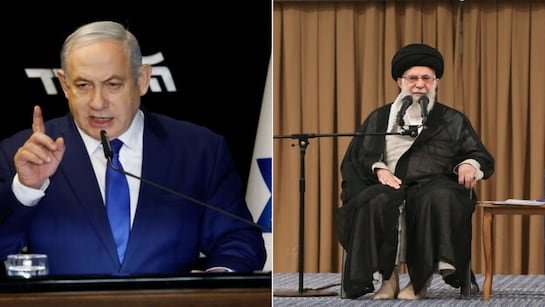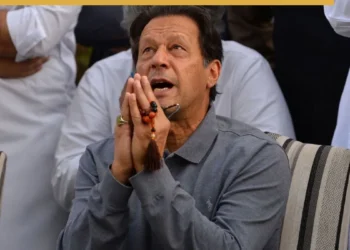On the morning of June 13, Israel attacked nuclear facilities and military sites throughout Iran, resulting in the deaths of nuclear scientists and high-ranking officers from the Islamic Revolutionary Guard Corps. Tehran asserted that there were civilian casualties as well.
The assaults occurred before discussions between Iran and the United States concerning America’s increasing uranium enrichment, which Tehran claims is for non-military uses but is seen by Tel Aviv as “dangers” to its existence.
The clash between the two has reached its fifth day and exhibits no indication of cessation; on Monday, additional Israeli missiles struck Tehran, and Israeli Prime Minister Benjamin Netanyahu allegedly stated that the conflict could only conclude with the demise of his Iranian counterpart, Supreme Leader Ayatollah Ali Khamenei.
What led to the conflict?
Israeli Prime Minister Benjamin Netanyahu has consistently viewed Iran as the main adversary, pointing to its nuclear ambitions, aggressive statements, and backing of anti-Israel proxy organizations throughout the area.
Iran, in turn, has highlighted Israel’s ongoing assassination and sabotage operations against it, along with its destructive conflict with Hamas in the Gaza Strip, as the source of its hostility.
After Iran’s Islamic Revolution in 1979, the nation’s leadership swiftly recognized the U.S. and Israel as their primary adversaries. This was largely linked to the connections between the United States and Israel and Iran’s last monarch, Mohammad Reza Pahlavi, who escaped Iran in poor health before the revolution and was loathed by Iran’s new authorities.
In the last twenty years, Israel has consistently claimed that Iran is working on nuclear weapons. Iran claims its nuclear program is solely for peaceful reasons, yet the leader of the U.N. atomic monitoring agency has cautioned that Tehran possesses sufficient uranium enriched to near-weapons-grade levels to potentially produce “several” nuclear bombs if it decides to.
The International Atomic Energy Agency and Western countries believe Iran had a systematic nuclear weapons initiative until 2003. Iran claims its program is for peaceful purposes, yet continues to enrich uranium to levels close to those suitable for weapons. U.S. intelligence agencies have evaluated that Iran was not seeking the bomb.
Israel perceives a nuclear-capable Iran as a fundamental danger, and dismantling Iran’s network of regional terrorist proxy organizations has been a key objective.
Israel has severely weakened Iran’s most powerful proxies, Hamas and Hezbollah. The decline of Hezbollah played a key role in the collapse of Iran’s enduring ally and client in neighboring Syria, President Bashar Assad, last December.
After Iran carried out missile strikes on Israel last year, Israel retaliated with its own attacks, which included targeting Iranian missile installations and impairing air defenses.
The downfall of that proxy network, along with Iran’s newfound weakness, presented Israel with a chance to attack and pen another violent chapter in Iran-Israel relations.
ALSO READ: Israel‑Iran War Sparks Rally in Indian Defence Stocks – Should You Own Mazagon Dock, GRSE, Bharat Dynamics?













